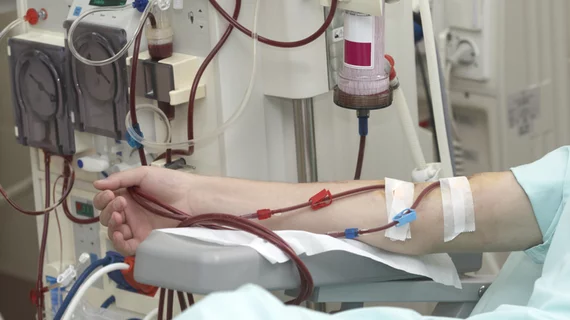AI guides therapeutic decisions for dialysis patients
The demand for hemodialysis to control anemia in patients with chronic kidney disease is outpacing the supply of clinicians trained to manage the treatments.
To compensate for the imbalance, researchers in Japan have developed an AI-based system that guides decisions on administering iron and other red-blood-cell stimulators nearly as well as experienced physicians.
According to a study current in the International Journal of Medical Sciences, one of the team’s signature breakthroughs was training the model on relatively small datasets. They did so by foregoing complex physiological data in favor of aggregated expert decisions.
In the trial, the AI guidance agreed with that of physicians’ actual decisions in up to 87% of cases.
Further, the model supplied guidance that differed from doctors’ but was nevertheless deemed clinically appropriate up to 98% of the time.
Calling the system AISACS for AI-supported anemia control system, lead author Toshiaki Ohara of Okayama University and colleagues point out that kidney patients with anemia are often constrained by financial concerns and resource availability.
“A feature that is unique to AISACS is that it learns dosage directions from physicians using no prediction model based on biochemistry or physiology,” Ohara et al. write. “These results attest to AISACS’ promising possibilities for clinical applications after wider validation through a prospective, multicenter study.”
In research highlights posted by the university, Ohara says the project’s hypothesis arose during a brainstorming session.
“We got the idea while contemplating the thought process of seasoned physicians,” he says. “After all, they do not calculate detailed values of vital reactions in a patient’s body when deciding dosages, which means prediction models based on biochemistry are not necessary.”
The study is available in full for free.

